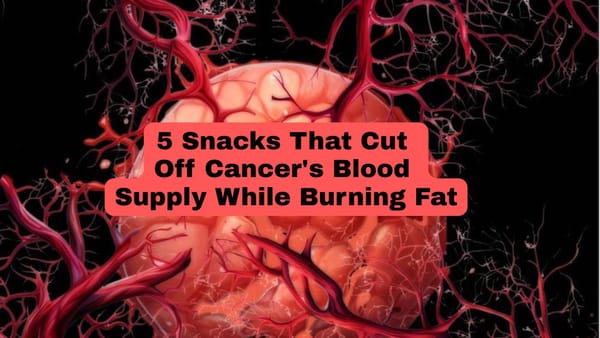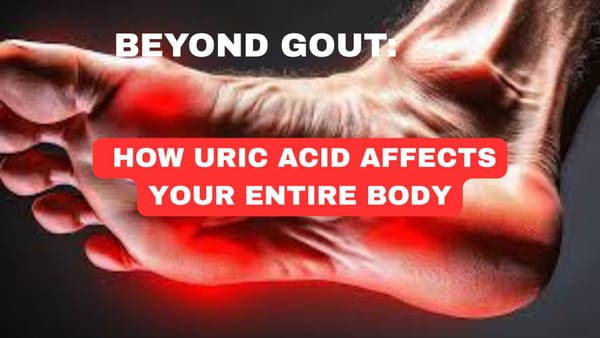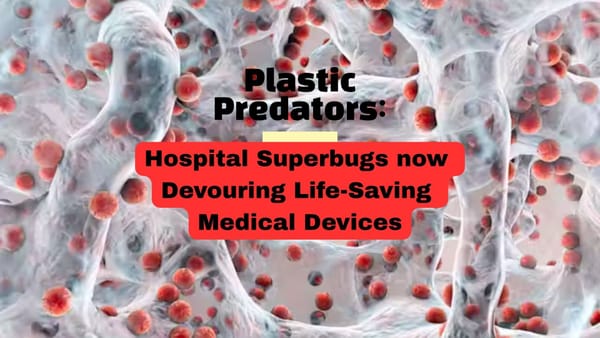Protecting Your DNA: Dietary Choices Matter
Explore which foods can damage DNA and increase cancer risk, the role of epigenetics, and healing foods that can help repair genetic damage.
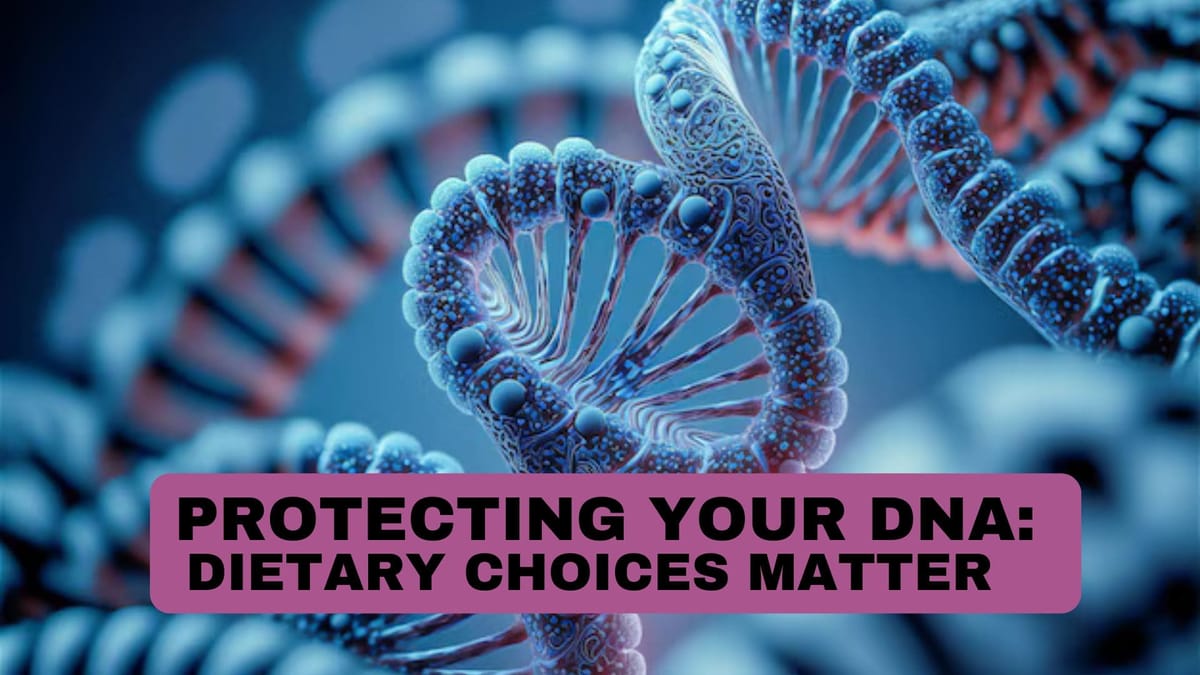
Our DNA is the blueprint of our bodies, carrying the instructions for every cell. But did you know that what we eat can affect this vital code? Let's look at how our diet impacts our DNA and what we can do to protect it.
Understanding DNA Damage: An Overview
DNA damage happens when the structure of our genetic material changes. These changes can lead to mutations, which may cause various health issues, including cancer. Keeping our DNA intact is crucial for maintaining good health and preventing diseases.
It's like an epiphany when you realise you have the power to maintain your body's instruction manual.
Dietary Contributors to DNA Damage
Not all foods are created equal when it comes to DNA health. Some can harm our genetic material. Here's what to watch out for:
Foods to Avoid:
- High-temperature cooked foods (eg. charred meats)
- Processed meats (cold deli sliced meat, hot dogs, bacon)
- Fried and deep-fried foods
- Sugary drinks and snacks and all ultra-processed foods
- Alcohol (in excess)
Most of us love barbecues, but overcooking or charring your meat is dangerous for your health.
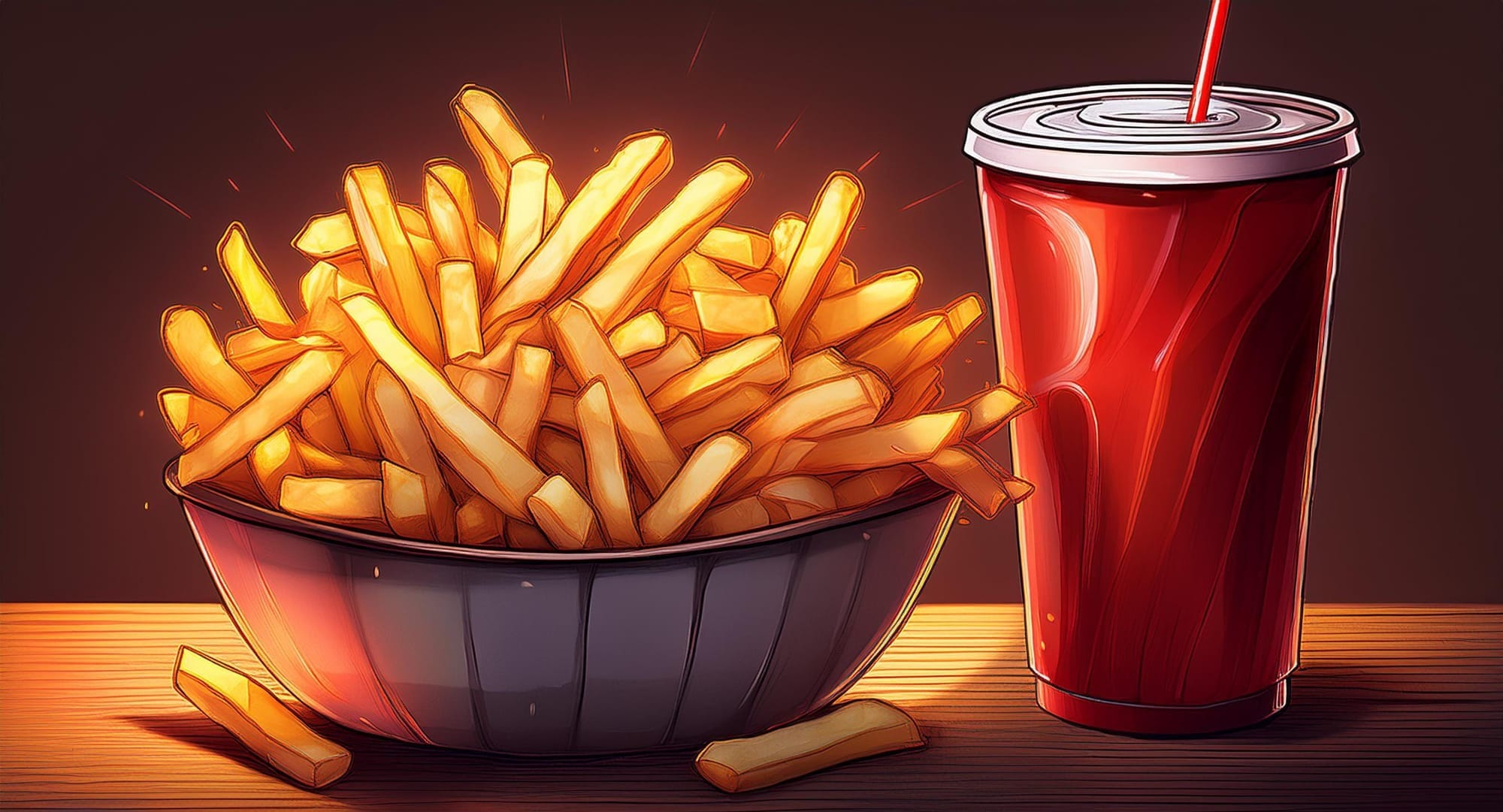
The Link Between Diet and Cancer
What we eat can directly impact our cancer risk by affecting our DNA. Here's how:
- Free Radical Production: Some foods increase free radicals in our body, which can damage DNA, as follows:
- Fried foods, especially those cooked in reused oil, can increase free radical production.
- Processed meats like bacon and hot dogs contain nitrites that can form free radicals
- Excessive alcohol consumption can lead to increased free radical formation in the body
- Inflammation: Certain dietary choices promote chronic inflammation, a known risk factor for cancer, as follows:
- High-sugar diets can promote chronic inflammation throughout the body.
- Trans fats, found in some processed foods, can trigger inflammatory responses.
- Excessive red meat consumption, particularly when charred, can lead to inflammatory processes.
- Direct DNA Alteration: Some food compounds can directly alter our genetic material - some examples:
- Heterocyclic amines (HCAs) formed in overcooked meats can cause DNA mutations.
- Polycyclic aromatic hydrocarbons (PAHs) in smoked foods can attach to DNA and cause changes.
- Aflatoxins, found in mouldy peanuts and grains, can directly damage DNA.
Epigenetics: The Role of Diet in Gene Expression
Epigenetics is the study of heritable traits, or a stable change of cell function that occurs without changes to the DNA sequence.
Epigenetics is like the 'software' that tells our genetic 'hardware' what to do. Our diet can influence this software, turning genes on or off. It's fascinating stuff!
Toxins
Toxins are substances capable of causing harm to living organisms by disrupting normal physiological functions. Examples include heavy metals like lead and mercury, environmental pollutants such as pesticides and industrial chemicals, microbial toxins produced by bacteria or fungi, and endogenous metabolic byproducts.
Some toxins are significant in the intricate relationship between diet and DNA damage. These harmful substances such as pollutants, heavy metals, pesticides, and endogenous metabolic byproducts, can contribute to genomic instability. Pesticide residues on food, especially non-organic produce, have been associated with DNA strand breaks, emphasizing the impact of dietary choices.
Endocrine-disrupting chemicals in plastics and certain food containers can interfere with hormonal balance, potentially contributing to DNA damage.
How dietary choices influence gene expression:
1. Some nutrients can silence harmful genes
- Sulforaphane, found in broccoli and other cruciferous vegetables, can silence genes involved in cancer growth
- Curcumin, the active compound in turmeric, can suppress genes that promote inflammation
- Resveratrol, found in red grapes and berries, can silence genes associated with cellular ageing
How dietary choices influence gene expression:
2. Others can activate beneficial ones
- Folate, abundant in leafy greens, can activate genes involved in DNA repair
- Omega-3 fatty acids in fish and flaxseeds can activate genes that reduce inflammation
- Vitamin D (from the sun) can activate genes that boost immune function and bone health
How dietary choices influence gene expression:
3. Consistent dietary patterns can create lasting epigenetic changes:
- Consistent consumption of a plant-based diet can change gene expression related to inflammation and oxidative stress
- Regular intake of fermented foods can modify gene expression in gut bacteria, influencing overall health
- A long-term Mediterranean diet can alter gene expression to reduce cardiovascular disease risk
If you have a history of heart disease for example, by adopting a heart-healthy diet, you can influence your gene expression and reduce your risk.
Healing Foods: Nutrients that Repair DNA Damage
Now for the good news - certain foods can help repair and protect our DNA. Here's a list of DNA-friendly foods:
| Food Category | Examples | Benefits |
|---|---|---|
| Berries | Blueberries, strawberries | High in antioxidants |
| Leafy Greens | Spinach, kale | Rich in folate |
| Nuts | Almonds, walnuts | Contain vitamin E |
| Fatty Fish | Salmon, sardines | High in omega-3 fatty acids |
| Cruciferous Vegetables | Broccoli, cauliflower | Contain sulforaphane |
These foods are rich in antioxidants, vitamins, and minerals that support DNA health. For instance, vitamin C (found in citrus fruits and others) and vitamin E (in nuts and seeds) are powerful antioxidants that protect DNA from oxidative stress.

Dietary Patterns for DNA Protection
While individual foods are important, overall dietary patterns play a crucial role in DNA health.
Mediterranean-type Diet:
- High in fruits, vegetables, and whole grains
- Includes healthy fats like extra-virgin olive oil and avocados
- Moderate in fish and poultry
- Low in red meat
Studies have shown that a Mediterranean diet can reduce DNA damage and lower cancer risk.
Plant-Based Diets:
- Rich in antioxidants and fibre
- Low in ultra-processed foods
- Can improve genomic stability (A genome is the complete set of genetic information in an organism). It provides all of the information the organism requires to function. In living organisms, the genome is stored in long molecules of DNA called chromosomes.)
Most people find that more plant-based eating offers remarkable results and significant improvements in inflammatory markers within a few weeks.
Practical Tips for a DNA-Friendly Diet
Here are some tips to make your diet more DNA-friendly:
- Cooking Methods:
- Steam or lightly sauté instead of frying
- Marinate meat before grilling to reduce harmful compounds
- Use herbs and spices to add flavour without excessive heat
- Incorporating Healing Foods:
- Eat healthy berries
- Snack on nuts and seeds
- Include a leafy green salad with lunch
- Have fatty fish for dinner 2-3 times a week (salmon, sardines, anchovies)
- Balance Your Plate:
- Fill half your plate with vegetables
- Add a quarter of whole grains, eg quinoa
- Include a palm-sized portion of protein
Remember, small changes can make a big difference. Your DNA will thank you for every healthy choice you make.
Key Takeaways
- Our diet plays a crucial role in protecting our DNA
- Some foods can damage DNA, while others can help repair it
- Dietary patterns like the Mediterranean diet can offer significant protection
- Cooking methods matter - opt for gentler cooking techniques
- Incorporate a variety of colorful fruits and vegetables into your meals
Protecting your DNA through diet isn't about perfection - it's about making informed choices more often. Every meal is an opportunity to nourish your body and safeguard your genetic health.
Remember, while diet is powerful, it's just one piece of the health puzzle. Always consult with healthcare professionals for personalized advice. Here's to your health and well-being!


